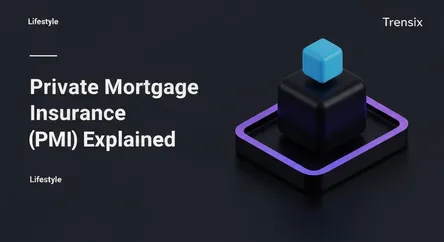Lifestyle
Private Mortgage Insurance (PMI) Explained

Learn about Private Mortgage Insurance (PMI), the extra cost for homebuyers with a down payment of less than 20% on a conventional loan.
What is it?
Private Mortgage Insurance (PMI) is a type of mortgage insurance that conventional mortgage lenders require when a homebuyer makes a down payment of less than 20% of the home's purchase price. Unlike homeowner's insurance, PMI does not protect the buyer. Instead, it protects the lender against losses if the borrower defaults on the loan. It's typically paid as a monthly premium that's added to your mortgage payment, though sometimes it can be paid as a one-time, upfront premium.
Why is it trending?
With rising home prices across the country, saving for a 20% down payment has become a significant hurdle for many, especially first-time homebuyers. As a result, more buyers are opting for lower down payments to enter the housing market sooner. This has made PMI a common and frequently discussed topic in real estate and personal finance circles. It represents a trade-off: achieve homeownership faster, but with a higher monthly cost until sufficient equity is built.
How does it affect people?
PMI directly affects a homeowner's finances by increasing their monthly mortgage payment, which can impact their overall budget and affordability. This added cost continues until the homeowner reaches at least 20% equity in their home, at which point they can request its cancellation. While it adds to the cost of borrowing, PMI also enables many individuals and families to purchase a home without having to save for many years to accumulate a large down payment, making homeownership more accessible.